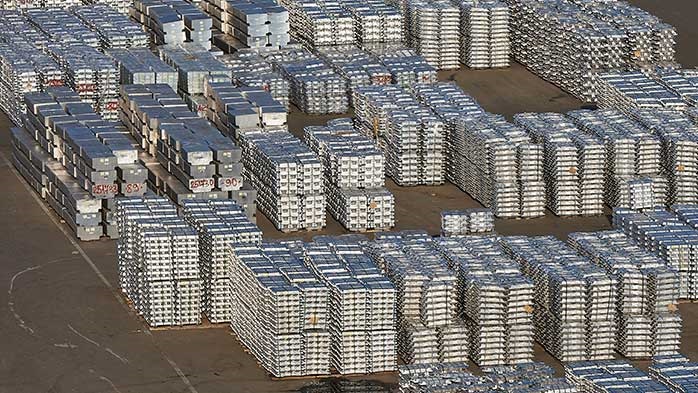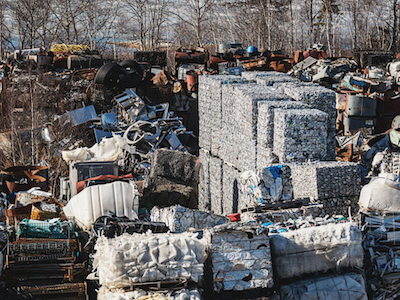Market

May 21, 2024
"A game changer." LME to add emissions data tracking for aluminum ahead of EU policy
Written by Stephanie Ritenbaugh
The London Metal Exchange is proposing new requirements next year for aluminum producers on the exchange to track emissions data and help compliance with EU climate regulations.
The requirements, which would go into effect March 2025, are aimed at integrating the European Union’s Carbon Border Adjustment Mechanism (CBAM) requirements, a policy that imposes a cost on select carbon-intensive goods, such as steel and aluminum, imported into the EU.
The European Commission says the standards are meant to cut the risk of so-called “carbon leakage.” That is, when companies based in the EU move carbon-intensive production abroad to countries where less stringent climate policies are in place or when EU products get replaced by more carbon-intensive imports.
CBAM goes into full effect in 2026, with a current transitional phase between 2023 and 2025, according to the commission.
“With the EU’s policy change coming into effect, our proposal is designed to support the market with CBAM compliance – providing enhanced access and procedural efficiencies for the whole value chain – and pave the way for the integration of further regional policy changes that are expected to follow,” said Georgina Hallett, LME chief sustainability officer.
The goal is to eventually expand the system to include other metals beyond aluminum, Hallett said.
Under LME’s program, aluminum producers would upload verified emissions data to the LME’s register, called LMEpassport, enabling them to source and track information on imports.
LMEpassport digitizes certificates of analysis, the key quality assurance documents that must accompany all shipments of LME metals into and out of warehouses. They show the origins, purity, size and shape of a batch of metal. LMEpassport is meant to help lessen the administrative burden for producers, promote transparency and certainty, and help reduce friction at the EU border for LME-listed metals, the exchange said.
Additionally, LMEpassport is meant to help companies comply with regulatory and industry standards, supporting the LME’s broader sustainability agenda by providing the tools necessary for responsible and efficient trading of recycled and sustainably produced metals.
Hallett noted the potential to put sustainability goals into real-world initiatives.
“I feel like we have a sort of dot.com-style bubble around sustainability where everyone was just super excited about it, and it was lovely to have business and ethical objectives in line. And I think it created a lot of noise,” Hallett said.
“Now we are really getting into the weeds about sustainability. How do you measure it? How do you make sure those numbers are accurate? How do you make sure they’re comparable?” Hallett said. “I know it’s less exciting to talk about, but it’s the stuff that makes sustainability real, and it gives it a future, because it’s based on facts rather than noise.”
Hallett called the move a “game changer” by embracing a system that makes it easier to advance sustainability measures.
“Recycling metal is good, and instinctively, everyone gets why. But really, what are the technical factors that make it good? How do you properly associate emissions with it? How do you deal with the social risks involved in recycling?” Hallett said.
Like other LME metals, the LME recycled UBC contract provides reliable and accessible data on the sustainability and provenance of metals, which can boost confidence among market participants. It assures them that the metals they are trading meet high sustainability standards, which is increasingly important in a market focused on environmental goals.





